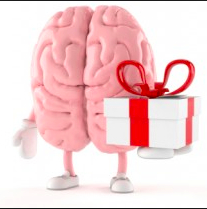College is evidently a difficult transition period. Many incoming freshmen have never been away from home for long, especially not months long. Homesickness is brushed off by many because they might see it as people just being weak or emotional. However, there is a science behind it. In an article written by Angela Keele, the breakdown of homesickness and our brain begins to make sense. This feeling of homesickness comes from the nostalgia that hits us. The nostalgia can be felt when listening to certain songs, looking at certain pictures, or even smelling certain smells. Basically, our limbic systems can be held responsible for most of this as they are comprised of the olfactory bulb (sense of smell) and the amygdala (responsible for emotional memory). The smell of your laundry detergent can easily bring you back to memories of your home prior to leaving for college. This nostalgia often hits hard and even results in tears (and many tears to be exact).
The professor of psychology and neuroscience as well as the director of Duke’s social psychology program, Mark Leary, additionally gives us some insight on the devastation that is homesickness. Leary discusses the “purpose” homesickness serves in the world today. This purpose is “…to deter us from leaving supportive groups and environment.” (Leary in 2014) However, homesickness is obviously telling us to do the exact opposite. Our minds tell us to find our ways back home to familiar settings when we feel out of place. This mental pain can be as detrimental as physical pain but it demands that we stay strong and ultimately end up okay.
With that being said, there is no defined “cure” regarding homesickness. Of course making friends, adjusting within the new environment, and getting involved can help though. Staying positive and connecting with friends can additionally help an enormous amount as well.
sources:
http://thelala.com/science-behind-homesickness-nostalgia/
http://dukemagazine.duke.edu/article/the-science-of-homesickness








